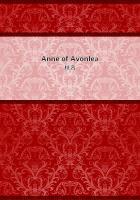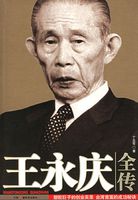As a matter of fact, when my letter arrived the governor of the gaol read it, and in a case of such importance would have relaxed the rules if Ernest's state had allowed it; his illness prevented this, and the governor left it to the chaplain and the doctor to break the news to him when they thought him strong enough to bear it, which was now the case. In the meantime I received a formal official document saying that my letter had been received and would be communicated to the prisoner in due course; I believe it was simply through a mistake on the part of a clerk that I was not informed of Ernest's illness, but I heard nothing of it till I saw him by his own desire a few days after the chaplin had broken to him the substance of what I had written.
Ernest was terribly shocked when he heard of the loss of his money, but his ignorance of the world prevented him from seeing the full extent of the mischief. He had never been in serious want of money yet, and did not know what it meant. In reality, money losses are the hardest to bear of any by those who are old enough to comprehend them.
A man can stand being told that he must submit to a severe surgical operation, or that he has some disease which will shortly kill him, or that he will be a cripple or blind for the rest of his life; dreadful as such tidings must be, we do not find that they unnerve the greater number of mankind; most men, indeed, go coolly enough even to be hanged, but the strongest quail before financial ruin, and the better men they are, the more complete, as a general rule, is their prostration. Suicide is a common consequence of money losses; it is rarely sought as a means of escape from bodily suffering. If we feel that we have a competence at our backs, so that we can die warm and quietly in our beds, with no need to worry about expense, we live our lives out to the dregs, no matter how excruciating our torments. Job probably felt the loss of his flocks and herds more than that of his wife and family, for he could enjoy his flocks and herds without his family, but not his family--not for long--if he had lost all his money. Loss of money indeed is not only the worst pain in itself, but it is the parent of all others.
Let a man have been brought up to a moderate competence, and have no specially; then let his money be suddenly taken from him, and how long is his health likely to survive the change in all his little ways which loss of money will entail? How long again is the esteem and sympathy of friends likely to survive ruin? People may be very sorry for us, but their attitude towards us hitherto has been based upon the supposition that we were situated thus or thus in money matters; when this breaks down there must be a restatement of the social problem so far as we are concerned; we have been obtaining esteem under false pretences. Granted, then, that the three most serious losses which a man can suffer are those affecting money, health and reputation. Loss of money is far the worst, then comes ill-health, and then loss of reputation; loss of reputation is a bad third, for, if a man keeps health and money unimpaired, it will be generally found that his loss of reputation is due to breaches of parvenu conventions only, and not to violations of those older, better established canons whose authority is unquestionable. In this case a man may grow a new reputation as easily as a lobster grows a new claw, or, if he have health and money, may thrive in great peace of mind without any reputation at all. The only chance for a man who has lost his money is that he shall still be young enough to stand uprooting and transplanting without more than temporary derangement, and this I believed my godson still to be.
By the prison rules he might receive and send a letter after he had been in gaol three months, and might also receive one visit from a friend. When he received my letter, he at once asked me to come and see him, which of course I did. I found him very much changed, and still so feeble, that the exertion of coming from the infirmary to the cell in which I was allowed to see him, and the agitation of seeing me were too much for him. At first he quite broke down, and I was so pained at the state in which I found him, that I was on the point of breaking my instructions then and there. I contented myself, however, for the time, with assuring him that I would help him as soon as he came out of prison, and that, when he had made up his mind what he would do, he was to come to me for what money might be necessary, if he could not get it from his father. To make it easier for him I told him that his aunt, on her deathbed, had desired me to do something of this sort should an emergency arise, so that he would only be taking what his aunt had left him.
"Then," said he, "I will not take the 100 pounds from my father, and I will never see him or my mother again."
I said: "Take the 100 pounds, Ernest, and as much more as you can get, and then do not see them again if you do not like."
This Ernest would not do. If he took money from them, he could not cut them, and he wanted to cut them. I thought my godson would get on a great deal better if he would only have the firmness to do as he proposed, as regards breaking completely with his father and mother, and said so. "Then don't you like them?" said he, with a look of surprise.
"Like them!" said I, "I think they're horrid."
"Oh, that's the kindest thing of all you have done for me," he exclaimed, "I thought all--all middle-aged people liked my father and mother."
He had been about to call me old, but I was only fifty-seven, and was not going to have this, so I made a face when I saw him hesitating, which drove him into "middle-aged."
"If you like it," said I, "I will say all your family are horrid except yourself and your aunt Alethea. The greater part of every family is always odious; if there are one or two good ones in a very large family, it is as much as can be expected."
"Thank you," he replied, gratefully, "I think I can now stand almost anything. I will come and see you as soon as I come out of gaol.
Goodbye." For the warder had told us that the time allowed for our interview was at an end.















